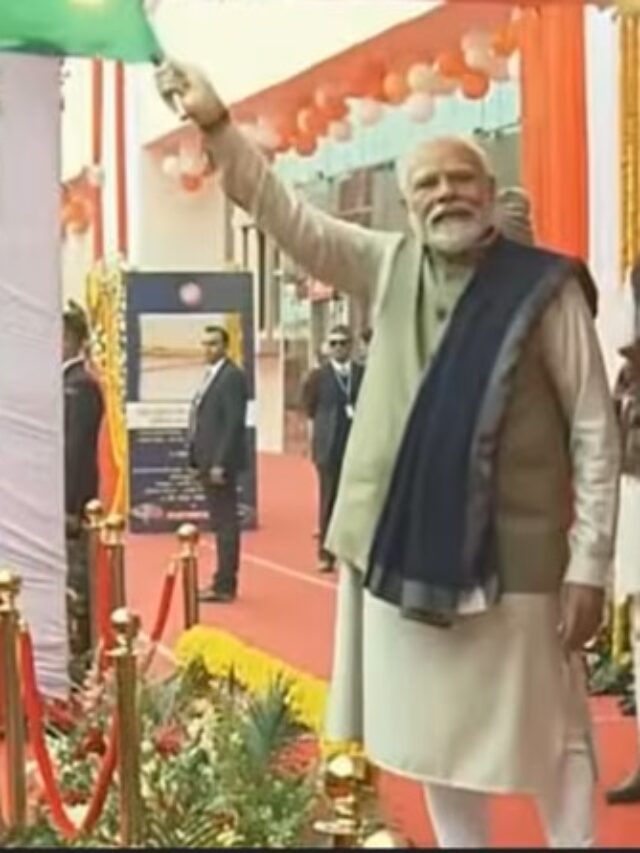Ayodhya Prasad Chaos:Amazon acknowledged that it has received a communication from the CCPA regarding misleading product claims by certain sellers and said it is ‘investigating them for violations’

Outline of the Article
- Introduction to the Ayodhya Prasad Chaos
- Amazon’s acknowledgment of the CCPA notice
- Investigation into misleading product claims
- Regulatory action by the CCPA
- Complaint by the Confederation of All India Traders (CAIT)
- Allegations of deceptive trade practices
- Selling sweets under the name ‘Shri Ram Mandir Ayodhya Prasad’
- The significance of Ram Mandir consecration on January 22
- CCPA’s seven-day ultimatum to Amazon
- Amazon’s interim actions and policies
- Impact on Amazon’s reputation
- The role of consumer protection in e-commerce
- Challenges faced by e-commerce platforms in ensuring product authenticity
- The importance of transparency in online product listings
- The broader implications for online marketplaces
Ayodhya Prasad Chaos: Amazon’s Tactical Response to CCPA’s Warning
Amazon, a global e-commerce giant, finds itself entangled in a controversy surrounding the sale of sweets labeled as “Shri Ram Mandir Ayodhya Prasad.” This article delves into the unfolding chaos and Amazon’s tactical response to the Central Consumer Protection Authority’s (CCPA) warning.
Introduction to the Ayodhya Prasad Chaos
In a surprising turn of events, Amazon revealed on Saturday that it had taken down products marketed as “Shri Ram Mandir Ayodhya Prasad.” This action followed a notice from the CCPA, accusing the e-commerce giant of selling misleading products.
Amazon’s Acknowledgment of the CCPA Notice
Acknowledging the CCPA’s communication, Amazon stated that it is actively investigating the claims made by certain sellers. The company is committed to taking appropriate actions against listings that violate its policies during this investigative phase.
Investigation into Misleading Product Claims
The heart of the matter lies in the CCPA’s concern over misleading product claims associated with the sale of sweets. Amazon is currently delving into the details to understand the extent of these alleged violations.
Regulatory Action by the CCPA
The regulatory authority, acting under the central government, initiated action based on a complaint filed by the Confederation of All India Traders (CAIT). The complaint accuses Amazon of engaging in deceptive trade practices, particularly concerning the sale of sweets masquerading as prasad from Ram Mandir in Ayodhya.
Complaint by the Confederation of All India Traders (CAIT)
The CAIT, representing traders across the country, raised concerns about Amazon’s business practices. Their complaint forms the basis for the CCPA’s intervention, marking a significant clash between e-commerce giants and traditional traders.
Allegations of Deceptive Trade Practices
The core allegation revolves around Amazon’s alleged deceptive trade practices, specifically selling sweets under the guise of being prasad from the soon-to-be-consecrated Ram Mandir in Ayodhya. This has sparked outrage and calls for regulatory scrutiny.
Selling Sweets Under the Name ‘Shri Ram Mandir Ayodhya Prasad’
The controversial products were marketed under the name ‘Shri Ram Mandir Ayodhya Prasad.’ The use of religious connotations in product branding raises ethical concerns, leading to questions about Amazon’s responsibility in ensuring the authenticity of products on its platform.

The Significance of Ram Mandir Consecration on January 22
The controversy gains additional significance as it coincides with the impending consecration of Ram Mandir on January 22. This event holds immense cultural and religious importance, making the alleged deceptive trade practices all the more egregious.
CCPA’s Seven-Day Ultimatum to Amazon
The CCPA, not taking the matter lightly, has issued a notice to Amazon, demanding a response within seven days. Failure to comply may result in further regulatory actions against the e-commerce giant.
Amazon’s Interim Actions and Policies
In response to the CCPA’s notice, Amazon is implementing interim measures. These actions, aligned with the company’s policies, aim to address the immediate concerns raised by the regulatory authority while the investigation is ongoing.
Impact on Amazon’s Reputation
The controversy surrounding the sale of ‘Shri Ram Mandir Ayodhya Prasad’ has the potential to impact Amazon’s reputation adversely. Consumer trust is crucial in the e-commerce industry, and any allegations of misleading practices can have lasting consequences.
The Role of Consumer Protection in E-Commerce
This incident raises broader questions about the role of consumer protection in the realm of e-commerce. As online platforms continue to grow, ensuring the authenticity of products becomes a critical aspect of maintaining consumer trust.
Challenges Faced by E-Commerce Platforms in Ensuring Product Authenticity
E-commerce platforms, including Amazon, face challenges in verifying the authenticity of products sold by third-party sellers. The incident sheds light on the difficulties in monitoring a vast array of products and ensuring compliance with ethical standards.
The Importance of Transparency in Online Product Listings
Transparency in online product listings is paramount. Consumers rely on accurate information, especially when products are associated with cultural or religious significance. The controversy emphasizes the need for robust measures to guarantee transparency in e-commerce.
The Broader Implications for Online Marketplaces
The Ayodhya Prasad Chaos serves as a case study with broader implications for online marketplaces globally. It highlights the delicate balance between providing a platform for sellers and safeguarding consumer interests, particularly in sensitive matters involving cultural or religious sentiments.
Conclusion
In conclusion, Amazon’s response to the CCPA’s warning regarding the sale of ‘Shri Ram Mandir Ayodhya Prasad’ brings to light the complexities and challenges faced by e-commerce platforms. As the investigation unfolds, the incident prompts a reevaluation of the industry’s ethical standards and the need for robust consumer protection measures.
Frequently Asked Questions (FAQs)
- Q: What led to the CCPA’s notice to Amazon regarding ‘Shri Ram Mandir Ayodhya Prasad’? A: The notice was issued based on a complaint by the Confederation of All India Traders (CAIT) alleging deceptive trade practices.
- Q: Why is the use of religious connotations in product branding raising concerns? A: The controversy surrounding the sale of sweets with religious connotations questions the responsibility of Amazon in ensuring the authenticity of products on its platform.
- Q: How is Amazon responding to the CCPA’s notice? A: Amazon is actively investigating the claims, implementing interim actions according to its policies, and has a seven-day deadline to respond to the CCPA.
- Q: What impact could this controversy have on Amazon’s reputation? A: Allegations of misleading practices may negatively impact Amazon’s reputation, highlighting the importance of consumer trust in the e-commerce industry.
- Q: What broader implications does this incident have for online marketplaces globally? A: The Ayodhya Prasad Chaos serves as a case study, emphasizing the delicate balance between providing a platform for sellers and safeguarding consumer interests in online marketplaces.
यह भी पढ़ें :Trident Techlabs IPO : ग्रे मार्केट में जबरदस्त क्रेज, अब तक 121 गुना भर चुका है इश्यू
यह भी पढ़ें :GIFT Nifty down 27 points: NSE, BSE पर 2024 के पहले ट्रेडिंग सत्र के लिए ट्रेड सेटअप
यह भी पढ़ें :Hindustan Petroleum • Share price : आज के लिए HPCL, SAIL, और Gujarat State Petronet के लिए आपकी रणनीति












